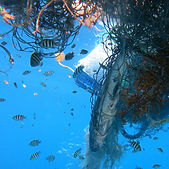

Veganism is an ethical choice.

Prof Peter Scarborough at Oxford University, who led a new research, published in the journal Nature Food, said: “Our dietary choices have a big impact on the planet. Cutting down the amount of meat and dairy in your diet can make a big difference to your dietary footprint.”
We decided to participate in the atlantic challenge as first vegan team ever for ethical, health and environmental reasons.
Veganism is the healthiest diet as it is rich in plant-based nutrients, antioxidants, and fiber while being lower in saturated fats, reducing the risk of chronic diseases such as heart disease, diabetes, and cancer. It is also the most resource-efficient, as plant-based foods require fewer natural resources like water, land, and energy compared to animal farming, which contributes significantly to deforestation, greenhouse gas emissions, and water depletion. Ethically, veganism aligns with the principle of minimizing harm to sentient beings by avoiding the exploitation and suffering of animals in the food production process.
Ocean as a carbon sink

Did you know that not only tree but the ocean absorbs our CO2?
From a 2022 report it is a good quarter of the total emissions this year. However, climate change itself ensures that the sea can no longer absorb as much CO2 as it used to. It is now four percent less. In an extreme case due to warmer temperatures, the sea cannot only absorb any more CO2 - but can even become a source of greenhouse gases.
Ghost nets
What are ghost nets?
.jpg)
A ghost net is a fishing net that is been abonded or lost in the ocean. The net can continue to catch fish until it sinks. and can be found in sensitive habitats, such as coral reefs. Here, the ghost nets can damage coral and even block access to necessary sunlight by smothering the reef. Coral reefs play a vital role in a healthy ocean ecosystem. According to a 2018 study in Scientific Reports, ghost nets make up at least 46 percent of the Great Pacific Garbage Patch. Those abandoned fishing lines and nets that do breakdown never go away; they just become smaller pieces of plastic.
Bycatch
What is bycatch?

Let's talk about bycatch. Wherever there is fishing, there is bycatch. “Bycatch” is the term used by the fishing industry to describe any “non-target animals” they inadvertently catch while fishing. Dolphins, sharks, turtles, you name it, fishing nets don’t discriminate. Humans kill 11,000 to 30,000 sharks every hour. This has resulted in widespread species extinction, habitat destruction, and irreversible damage to ocean ecosystems. The injured or dead animals caught as bycatch are usually thrown back into the ocean.

